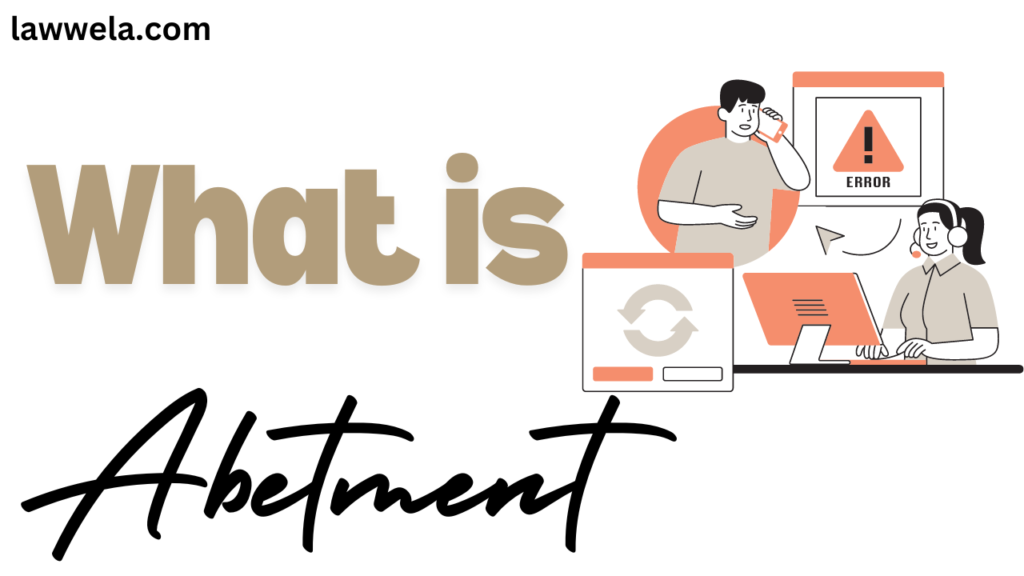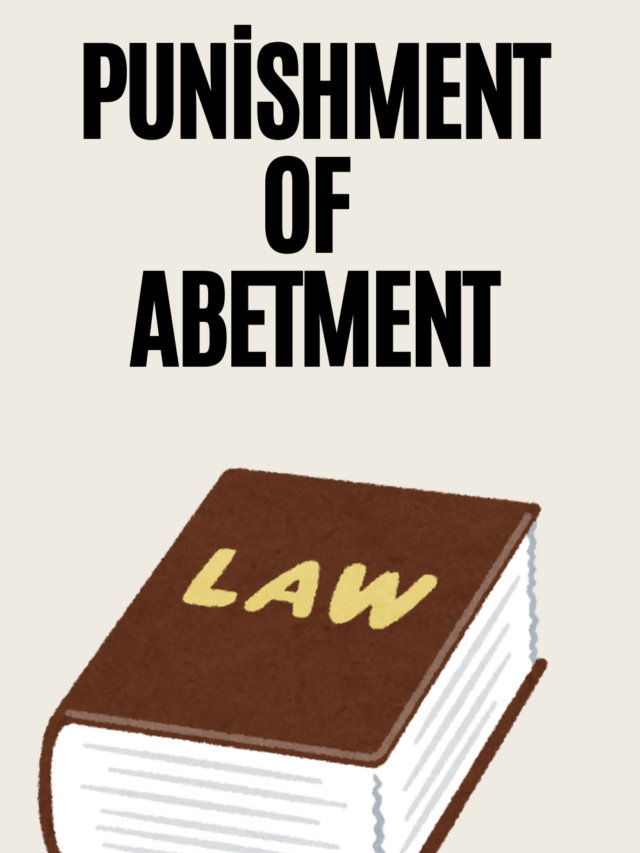According to Chapter V of the Indian Penal Code, even if a person has not committed the crime, they cannot be discharged of all allegations, if they have conspired to commit it. The law of abetment has made the law broader in penalizing these threatening intents.
What is Abetment?
Abetment means to instigate, provoke, or influence a person to commit a crime. it comes under the Indian Penal Code sections 107 to 120. the 3 stages come under section 107 which are:
Abetment by Provocation
The word “Provoke” means to influence, instigate, or persuade to do a thing. It involves such an act on behalf of the abettor “to instigate” the other person to commit an offence.
Abettor is not an individual if they are only a “silent spectator” and do not perform in the conduct of the crime.
Abetment by way of conspiracy
When a person decides with one or more persons in any conspiracy for the reason of committing an offence a person may be liable for conspiracy-related abetment. If they commit a crime or fail to act on that conspiracy.
In the case of Kehar Singh &ors. VS State (Delhi Administration) AIR 1988 Supreme Court highlighted the difference between the offence of Conspiracy under Section 120A and Abetment by way of conspiracy under Section 107, as the mere existence of agreement of conspiracy is not enough and an act must be taken further in the pursuance of the conspiracy, Under section 120 A, mere agreement to perform an offence is sufficient.
Abetment by way of intentional aid
In abetment by way of intentional aid, participation is necessary, where a person intentionally aiding in
- Doing an act directly assisting the crime, or
- Illegal omission of a legal act, or
- By doing an act that facilitates the completion of an act.
For Example: ‘A’ and ‘B’ together go to the house of ‘C’ a girl, where A is trying to rape the girl, while B holds her father, Here, B cannot take a defence that he did not commit the rape of C, so he should not be held liable.
In this case, B will be liable for committing abetment of rape by way of intentional aid.
Explanation 2 of Section 107 states that for making a person liable for an offence of abetment by way of intentional aid, the actual offender must be convicted for the offence.
For Example: B, F, and C decide to rob a person X and ask Y, the servant of X to tell them when X will go outdoors.
Now if B, F, and C come to commit robbery with the help of Y, who participates in the commission of that crime and is found guilty of it, Y would be liable for the crime as an abettor.
But if B, F, and C did not come to commit the offence or the robbery was committed but was not proved in the court and B, F, and C are acquitted of such charges of robbery, Y also cannot be punished for abetting such an act.
Therefore, for a charge of abetment to be intentional aid, the alleged offence abetted must be proved.
In Jamuna Singh VS State of Bihar AIR 1967, the Supreme Court made this point very clear in the following words; in the case of a person abetting an offence by intentionally aiding another to commit that offence, that charge of abetment against him would be expected to fail when the person alleged to have committed the offence is acquitted of that offence.
There is another case Trilok Chand Jain VS Delhi AIR 1977 in which it was held that when the principal offender himself was acquitted, then the person accused of aiding could not be convicted.
Who is abettor under IPC?
Section 108 talks about the abetment. It comes under the Indian Penal Code. An abettor is a person who helps in the offence or helps in the execution of an act that would be considered criminal activity. If carried out by a person qualified under the law with the same intent or knowledge as the aider.
Explanation 1: Abetment of illegal omission
Even though the person who is aiding may not be required to perform the act, they may yet be guilty of an offence.
For Example: A asks B, a police officer, to not go to his duty. Though A is not legally bound to do that act, he is liable for abetment of such illegal omission.
Explanation 2
For the abetment to be committed it is not important for the act assisted to be done or for the effect necessary to constitute the offence to be caused.
Illustration: D is provoked by A to kill C, but D declines. It is A fault that D was assisted in killing someone.
Explanation 3: it does not matter who helps anyone commit a crime
The determination of an abettor’s liability is independent of their skill, purpose, or knowledge regarding the commission of a crime.
Even if the individual who is being assisted is incapable of committing an offence, the act still counts as abetment. For instance, if a person is abetted as a child, or a person or unsound mind, or a person, who is intoxicated, they all are protected under the chapter of General Defenses, as they cannot form the requisite mens rea.
Illustration: C, with a wrong purpose, force a child or a lunatic person to consign an act that would be an offence if carried out by someone with the same intent as A and who is legally capable of doing so. In this case, A is liable for the offence.
Explanation 4:
The abetment of an offence is an offence, and the abetment of that abetment is also an offence.
Illustration: when a person provokes another person to commit an offence. then both the person are liable for the offence and liable for the punishment.

Punishment of abetment
SECTION 109: When act abetted is committed:
If the encouraged act is committed in consequence, and no specific provision is made for its punishment, then the person will be liable for the same punishment as an offence.
SECTION 110 of abetment
If the person abetted does the act with a different intention or knowledge from that of the abettor, the abettor will be liable for punishment provided for the offence if the act had been done with his (abettor’s) intention or knowledge.
SECTION 111 of abetment
When one act is encouraged and another is carried out, the one who encouraged the other is held accountable for the latter in the same way and to the same degree as if he had actively encouraged the former if the latter was a likely result of the support.
SECTION 112: When the abettor is liable for both acts, act abetted and act done
The abettor is subject to punishment for each offence if the act for which they are liable under section 111 is performed in addition to the act they assisted and is a separate offence.
SECTION 113: When one act is abetted, a different effect is caused
In a situation where an act is encouraging intending to produce a specific outcome but ends up producing a different outcome, the person who encouraged the behavior is accountable for that outcome, in the same manner, and to the same extent as if he had abetted the act, provided he knew that the act abetted was likely to cause that effect.
SECTION 114 of abetment
Abettor is considered to have done the act or offence for which he would be held liable if he had not abetted when the act or offence was performed.
SECTION 115 and 116 of abetment
- Offence was punishable with death or life imprisonment for 7 years
- Offence is punishable with any other imprisonment- for 1/4 of the maximum punishment provided for the offence
- When the Offence is committed by a public servant the maximum punishment ½ provided for offence. Sections 117, 118, 119, and 120 deal with other forms of abetment
Conclusion
Abetment comes under Chapter V, under sections 107 to 120 of the Indian Penal Code. when the abettor instigates another person to commit a crime. under this, the abettor and that person both are liable for the punishment if the offence happens.





